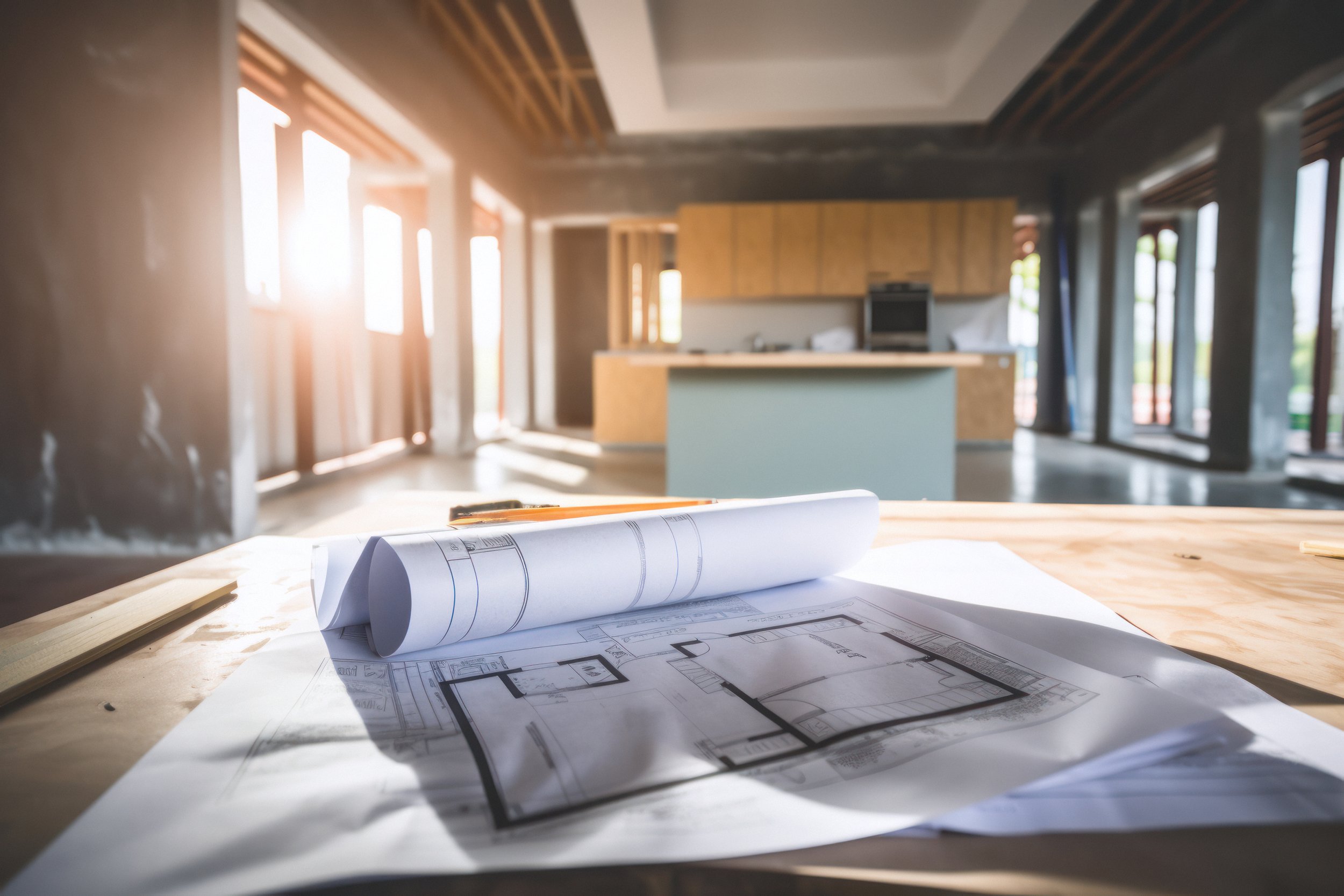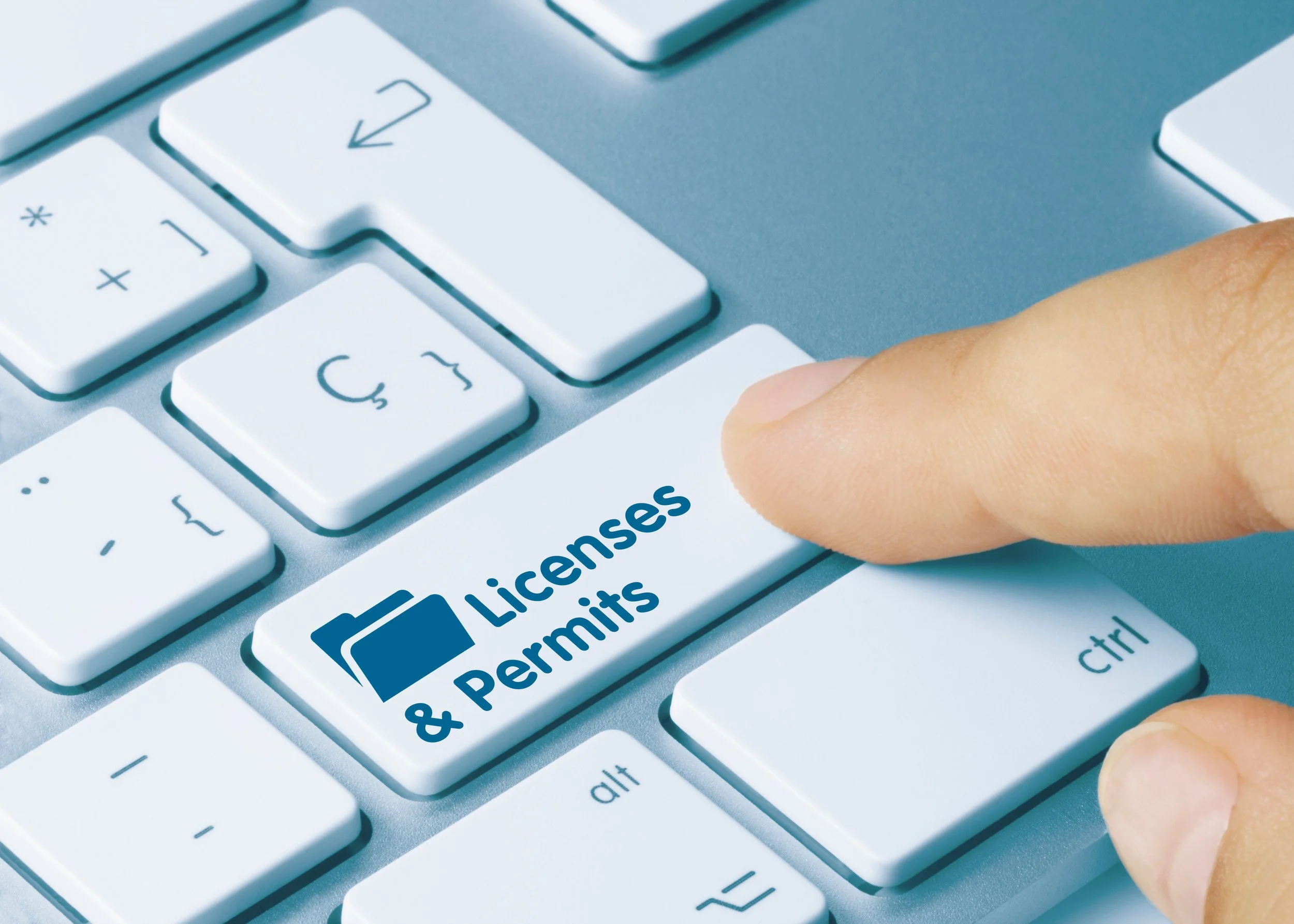Where Compliance Meets Convenience
Projects

Services
Licenses & Permits
If you are processing all types of licenses and permits for your business or residence, it's important to ensure that you have a comprehensive understanding of the specific requirements for each type of license or permit. This would involve:
1. Conducting thorough research: Identify the various types of licenses and permits that businesses in your industry or location typically require. This could include business licenses, health permits, building permits, zoning permits, professional licenses, and more.
2. Understanding the application process: Familiarize yourself with the specific application processes for each type of license or permit. Different licenses may have distinct application forms, documentation requirements, and submission procedures.
3. Compliance with regulations: Ensure that your business is compliant with all relevant regulations and requirements for obtaining the necessary licenses and permits. This may involve meeting specific standards, providing evidence of insurance or bonding, demonstrating professional qualifications, and more.
4. Efficient processing: Streamline the application process for clients by providing guidance, assistance with completing forms, and ensuring that all necessary documentation is in order. This can help expedite the processing time and reduce the likelihood of application rejections.
5. Ongoing support: Offer ongoing support to clients by helping them understand the renewal process for their licenses and permits, as well as assisting with any regulatory changes that may impact their licensing requirements.
By specializing in processing a wide range of licenses and permits, you can position your business as a valuable resource for entrepreneurs and businesses seeking to navigate the complexities of regulatory compliance.
Business Licenses
Sunbiz & FEIN
DBPR Licenses
Certificate of Use & LBT
Alcohol Tobacco License
Restaurant License
1. Determine the type of license required for your business: Before you start the application process, research and determine the specific licenses and permits required for your business based on its location, industry, and activities.
2. Gather necessary documents and information: Review the application requirements and gather all necessary documents and information such as business incorporation documents, identification, financial statements, business plans, and any other relevant documentation.
3. Complete the application forms: Fill out the required application forms accurately and completely. Ensure that all information provided is true and correct, as false information can result in delays or rejection of the application.
4. Submit the application: Submit the completed application forms along with the required documents to the relevant licensing authority. Depending on the type of license, you may be required to submit the application online, in person, or by mail.
5. Pay the application fees: Many licenses require payment of application fees, so be prepared to pay the necessary fees when submitting your application. Ensure that you are aware of the fee amount and payment methods accepted by the licensing authority.
6. Wait for processing: After submitting your application, wait for it to be processed by the licensing authority. The processing time may vary depending on the type of license and the volume of applications being handled.
7. Address any additional requirements: In some cases, the licensing authority may request additional information or documentation to complete the application. Be prepared to provide any additional requested information in a timely manner.
8. Follow up on the status: Keep track of the status of your application by following up with the licensing authority if necessary. This will help ensure that your application is being processed and address any issues or delays that may arise.
9. Receive the license: Once your application is approved, you will receive the license for your business. Be sure to review the terms and conditions of the license and comply with any ongoing requirements to maintain the license in good standing
Building Permits
Commercial
Residential
Additions
Remodeling
Legalization
Demolition
Violation Cases
New Construction
Processing building permits for commercial and residential properties, including additions, remodeling, legalization, violation cases, and new construction, involves a detailed and specialized approach. Here's a general outline of the steps involved in this process:
1. Initial consultation: Meet with the client to understand their specific project requirements and assess the scope of work. This may include reviewing architectural plans, identifying any existing violations, and determining the necessary permits for the proposed construction activities.
2. Documentation and application preparation: Gather all required documentation, such as architectural drawings, engineering reports, and any relevant permits or licenses. Prepare the building permit application, ensuring that all necessary information is included and accurate.
3. Submission of the application: Submit the completed building permit application to the relevant local or municipal building department. Ensure that the application is accompanied by all required documents and fees.
4. Review and approval process: The building department will review the application, plans, and documentation to ensure compliance with local building codes, zoning regulations, and other applicable laws. Address any comments or requests for additional information from the building department in a timely manner.
5. Addressing violations and legalization: If the project involves addressing existing building violations or legalization of unpermitted construction, work closely with the building department to rectify the issues and obtain the necessary approvals to bring the property into compliance.
6. Permit issuance: Once the application is approved and all requirements are met, the building department will issue the necessary permits for the proposed construction activities.
7. Construction phase support: Provide ongoing support to the client during the construction phase, ensuring that all work is performed in accordance with the approved plans and permits.
8. Final inspection and closeout: Coordinate final inspections with the building department to ensure that the construction work complies with approved plans and applicable codes. Once the project is completed, assist in obtaining the final sign-offs and closeout documentation from the building department.
By offering comprehensive support for building permit processing, including addressing violations and legalization, you can assist clients in navigating the complexities of regulatory compliance and ensure that their construction projects proceed smoothly and in full compliance with local regulations.






